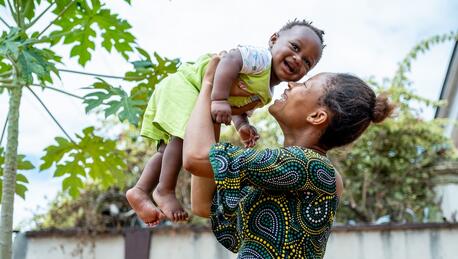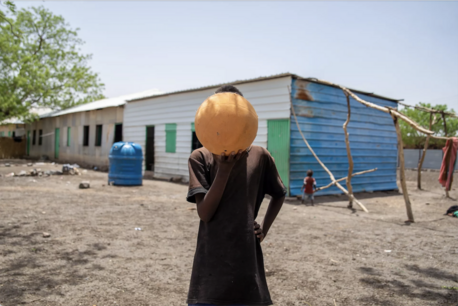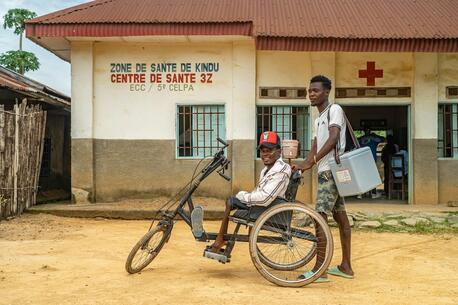From D.C. to Niger
Last week, my friend Laurel left her job and home in Washington, D.C., for Niger. When she arrives, she'll face a stark contrast from DC life. While Americans continue to lose jobs and both sides of the political fence over here wrestle with how large a role the government will play in orchestrating our collective recovery, Niger remains one of the poorest countries in the world. Unlike the United States, it has minimal government services to develop its resources " or even provide its 13 million people with some sort of fiscal or physical relief, including the most basic of needs: Water.
Last week, my friend Laurel left her job and home in Washington, D.C., for Niger. When she arrives, she'll face a stark contrast from DC life. While Americans continue to lose jobs and both sides of the political fence over here wrestle with how large a role the government will play in orchestrating our collective recovery, Niger remains one of the poorest countries in the world. Unlike the United States, it has minimal government services to develop its resources " or even provide its 13 million people with some sort of fiscal or physical relief, including the most basic of needs: Water.
Last week, my friend Laurel left her job and home in Washington, D.C., for Niger.
When she arrives, she'll face a stark contrast from DC life. While Americans continue to lose jobs and both sides of the political fence over here wrestle with how large a role the government will play in orchestrating our collective recovery, Niger remains one of the poorest countries in the world. Unlike the United States, it has minimal government services to develop its resources " or even provide its 13 million people with some sort of fiscal or physical relief, including the most basic of needs: Water.
 |
| © UNICEF/NYHQ2005-1058/Radhika Chalasani |
| A girl trails a blanket past tents at a UNICEF-assisted therapeutic feeding center in Niger. |
Suffering from extended droughts common to sub-Saharan Africa, global climate change and the effects of a fledgling insurgency, tens of thousands of people in Niger are virtually without access to potable drinking water. During the short rainy season, households depend on marsh water " often contaminated with weeds and sewage " to hydrate, cook and wash. Once the marshes that formed during the rains dry up, the people dig holes " sometimes up to 20 meters deep " to bring forth water that has seeped into the ground. When those last reserves are exhausted, nomads in some of the more rural regions literally hunt for water, traveling up to fifty kilometers (32 miles) round trip to find one of the few working wells in the area.
 | |
| © UNICEF/NYHQ2005-1033/Radhika Chalasani | |
| A woman holds her malnourished daughter at the UNICEF-assisted therapeutic feeding center. |
While constant thirst remains a fact of life in Niger, so do poor health and child mortality due to severe water deprivation. Children suffer from hives and lice because they cannot bathe; dysentery and diarrhea are an every day occurrence; and infant mortality rates due to dehydration and water-borne illness compete for the highest in the world. One child in five dies before the age of five years in Niger " 18 percent of those deaths are caused by diarrhea.
The situation remains dire, but through effective government advocacy, UNICEF has successfully overcome obstacles that have prevented NGOs from helping to facilitate community-based action. As a result, UNICEF continues to push forward plans to improve infrastructure in nomadic regions, including access to water. In 2004 and 2005, UNICEF supported the construction or rehabilitation of 60 boreholes and 17 cemented wells across Niger. Last year alone, UNICEF erected 13 boreholes in Niger's Tillabery region, with an aim to build 30 additional ones by the end of 2009.
On the ground in Niger, Laurel will see some of these new wells firsthand, and though she left an American economy in shambles, I already know her first letter from Niger will contain an appeal for more assistance for Niger. Because while the United States tries to rebuild everything it lost in the economic crisis, Niger has only just begun laying the ground floor.


